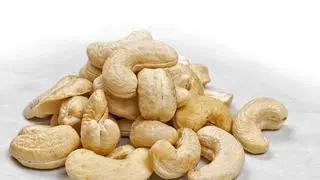
Indian food has started coming labelled as from Pakistan and Bangladesh to avoid tariffs
| Photo Credit:
Kagenmi
The imposition of a 25 per cent tariff on India could increase the prices of popular Indian rice varieties, according to consumers in the Indian diaspora.
“Prices of several grocery items have gone up in Indian stores over the last few months. The cost of a 20-pound bag of Sona Masuri rice at Costco is $20. This might go up after the tariffs are factored in,” Prasad Kunisetty, an NRI living at New Jersey, told businessline over the phone. He said the Indian food has started coming labelled as from Pakistan and Bangladesh to avoid tariffs. Some Indian stores are reportedly selling products with Indian names but made in Pakistan.
Vishal Gupta, Founder of Jindal Rice Mills, felt that the imposition of 25 per cent by US President Donald Trump was more of a short-term measure than a structural setback.
Never primary source
“Yes, it does momentarily squeeze our margins and could lead to some order deferrals from smaller US buyers. However, the reality is that the US has never been our primary destination, as West Asia, Africa, and parts of Europe account for the bulk of our trade,” he said.
“Even with the new tariff, our landed price in the US remains competitive compared to Vietnam or Thailand, which face higher rates. We were already prepared for geopolitical shifts like this, and we have already started expanding into untapped markets like Egypt, Malaysia, and CIS countries,” he said.
Even as the Government tried to engage with trade partners and open diplomatic channels to ease such shocks, the company felt that the move may cause turbulence in the next one or two quarters. “It’s unlikely to dent our business from a long-term perspective,” he said.
Consumers to bear
Kiran Kumar Pola, Director of Deccan Grainz India, believed that the tariff could lead to an increase in rice prices and might lead to a reduction in consumption among diaspora consumers in the US.
Rajasekhar Reddy Seelam, who recently sold the 24 Mantra brand to ITC Limited, echoed this view, saying that the tariff burden on rice exports would be passed on to consumers, resulting in reduced consumption. “The diaspora consumers eat a few varieties from India out of old habits. There are no immediate substitutes. They might cut down on consumption,” he said.
B. V. Krishna Rao, President of the Rice Exporters’ Association, said that the overall impact would be minimal, as the US, being an export market, was not a significant market for Indian exporters. “It is a small market comprising the diaspora consumers,” he said.
He pointed out that there was no real substitute for Indian varieties.
More Like This
Published on July 31, 2025


